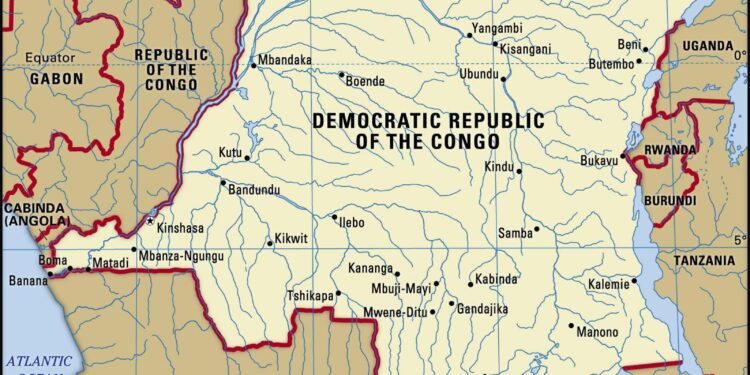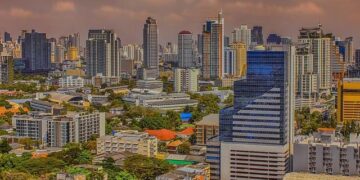In a significant move to bolster healthcare access in one of the world’s most remote regions, the World Health Organization (WHO) has announced its support for the Democratic Republic of the Congo (DRC) in enhancing disease diagnosis efforts. This initiative is aimed at improving health outcomes in underserved areas, where timely and accurate diagnosis of diseases remains a critical challenge. The DRC, a vast nation with diverse geography and limited healthcare infrastructure, faces ongoing public health threats, including outbreaks of infectious diseases. WHO’s commitment to reinforcing diagnostic capabilities comes at a crucial time, as the region grapples with both endemic health issues and emerging threats. As health authorities work to implement innovative solutions, this partnership marks a proactive step toward achieving better health equity for millions of Congolese living in remote locales.
WHO Enhances Disease Diagnosis Efforts in Remote Areas of Democratic Republic of the Congo
The World Health Organization (WHO) is launching a robust initiative to enhance disease diagnosis capabilities in the remote regions of the Democratic Republic of the Congo (DRC). This effort aims to bridge the gaps in healthcare access and ensure timely disease identification, crucial for effective treatment and containment. The program will focus on deploying innovative diagnostic technologies and training healthcare workers in these underserved communities. Key components of the initiative include:
- Mobile Diagnostic Units: Equipped vehicles that can travel to isolated areas, providing on-site testing and consultations.
- Community Health Worker Training: Empowering local health personnel with the skills needed for accurate disease assessment and referral to higher-tier healthcare facilities.
- Awarding Grants: Financial support for local healthcare programs that align with WHO’s vision for enhanced diagnostic services.
In collaboration with local health organizations, the WHO is also implementing a comprehensive surveillance system to monitor disease outbreaks effectively. This system will utilize a mix of traditional and digital reporting methods to ensure rapid information flow between remote areas and national health authorities. The deployment of this system will involve:
| Activity | Description |
|---|---|
| Training Workshops | Conducting sessions for health workers on data collection and reporting techniques. |
| Community Awareness Campaigns | Educating residents about the importance of early diagnosis and available health services. |
Strengthening Health Infrastructure: Key Recommendations for Effective Disease Management
In a concerted effort to enhance disease management, it is crucial to prioritize sustainable investments in health infrastructure, particularly in remote areas of the Democratic Republic of the Congo (DRC). The World Health Organization (WHO) advocates for the adoption of innovative technologies and strategies that can facilitate early diagnosis and effective treatment of diseases in these under-resourced regions. Key recommendations include integrating telemedicine solutions to reach isolated communities, improving supply chain logistics for medical supplies, and fostering partnerships with local health workers to build capacity within the healthcare system.
Furthermore, strengthening disease surveillance systems is vital for timely response and control measures. Strategies to consider encompass the implementation of mobile health units that can traverse difficult terrains, conducting regular training programs for healthcare personnel on the latest diagnostic methods, and establishing community health education initiatives to raise awareness about preventive health measures. By prioritizing these recommendations, the DRC can transform its health landscape, ensuring that even the most remote populations receive the care they need without delay.
Empowering Local Communities: Training and Resources to Combat Health Challenges
The initiative by the World Health Organization (WHO) in the Democratic Republic of the Congo focuses on enhancing the skills and knowledge of local healthcare workers, equipping them to better manage health crises in remote regions. This effort underscores the necessity of grassroots involvement in public health. The training includes:
- Diagnostic Skills Enhancement: Workshops that cultivate advanced skills in identifying diseases.
- Field Epidemiology Training: Practical sessions aimed at understanding disease patterns in local contexts.
- Resource Management: Strategies for effectively allocating limited healthcare resources.
Moreover, the WHO partnership is not just about training but also aims to provide essential resources that are critical for combating prevalent health issues. This multifaceted approach includes:
- Provision of Supplies: Essential medical equipment and diagnostic tools supplied to local health centers.
- Community Engagement: Initiatives that encourage local populations to participate in health education and disease prevention measures.
- Data Collection and Monitoring: Systems established for tracking disease outbreaks and health conditions, enabling timely interventions.
In Summary
In conclusion, the World Health Organization’s robust support for the Democratic Republic of the Congo highlights an essential commitment to enhancing disease diagnosis in remote regions of the country. As healthcare initiatives expand, the collaboration between local authorities and international organizations is vital in strengthening health systems, ensuring better disease surveillance, and ultimately improving health outcomes for vulnerable populations. With increased resources and training, the WHO aims to empower communities and facilitate a proactive approach to disease management. This partnership marks a significant step towards addressing the healthcare disparities in the DRC, fostering resilience, and safeguarding the health of its citizens in the face of ongoing challenges. The road ahead remains complex, but with steadfast collaboration and determination, the potential for a healthier future is within reach.












Did a Restorer Secretly Paint Italian Prime Minister Giorgia Meloni Into a Historic Church Fresco?